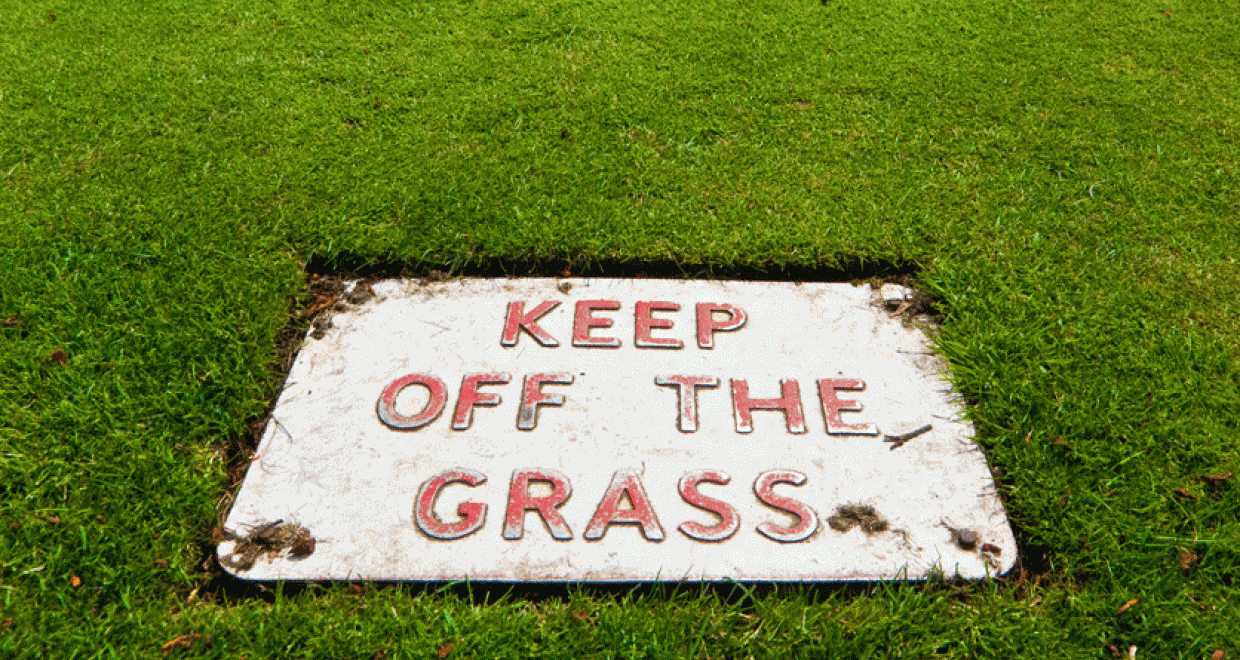Keep off the grass? No way!
Blog post written by Hu Xiao Qiong based on an article in the journal English Today
China’s rapid economic development is constantly making English more widely used in China. One convincing piece of evidence is the bilingual use of Chinese and English public signs, which has become “an attractive linguistic landscape”.
This paper discusses the ‘appropriateness’ of two possible translations of a public sign “小草微微笑,劝君绕弯道”: one is the literal translation – “The grass is smiling. Please walk on the path”; the other presents an indirect translation that conveys the basic meaning of the sign – “Keep off the grass”. Many Chinese researchers approve of this indirect translation. The author of this paper, however, considers the literal translation to be more culturally appropriate as it represents the Chinese rhetorical style, communication mode, philosophical meaningand politeness. The paper argues that the use of indirect translation for public signs will never result in ‘an attractive linguistic landscape” unless it promotes and spreads the cultural values of the literal translation. In support of this argument, a survey, carried out by the author, involving 287 Chinese and non-Chinese, demonstrated that the great majority preferred the literal translation, i.e., “The grass is smiling. Please walk on the path”. So “ Keep off the grass”? No way!
Read the full article ‘Keep off the grass? No way!’ in English Today here




